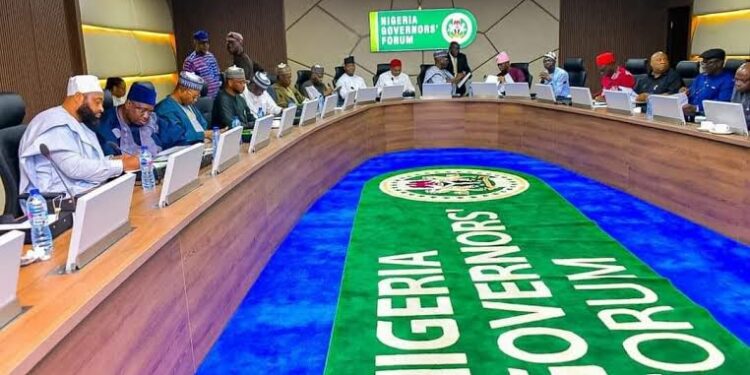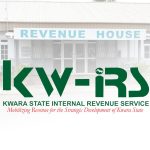Several state governors have formed implementation committees to oversee the new salary after President Bola Tinubu signed the N70,000 Minimum Wage Law.
Yet, some have decided to hold off until they hear from the Nigeria Governors Forum (NGF), while others have stated they could make the payment without laying off workers.
Governor AbdulRahman AbdulRazaq, for example, has approved the formation of a tripartite committee in Kwara State to determine the consequential adjustment component for other worker categories.
Rafiu Ajakaye, the governor’s chief press secretary, stated, “This comes as a new national minimum wage has been pegged at N70,000, triggering a need for consequential adjustments for senior cadres of workers in the state.”
The committee is made up of representatives from the organised private sector, labour centres, and state government.
The secretary is the director of Establishment and Pension, and the heads of service and finance commissioner co-chair it.
The commissioners for communications, works and transportation, local government and chieftaincy affairs, budget and planning, permanent secretaries (Finance, Service Welfare and Justice), and the governor’s senior special assistant on labour matters are among the other members of the committee.
The chairman of the Nigeria Labour Congress, the chairman of the Trade Union Congress (TUC), the chairman of the Joint Negotiation Council (JNC), the chairman of COHESU, and the secretary of the JNC are the sector’s representatives on the committee in addition to the federal controller on labour and employment.
The business sector is represented by the Manufacturers Association of Nigeria (MAN), the Nigerian Association of Small and Medium Enterprises, and the Kwara Chamber of Commerce (KWACCIMA).
“We need to wait for the report of the tripartite committee set up by the governor to know the details of what it will cost the government to implement the new minimum wage for its workers,” a top government official stated while discussing the financial ramifications of adopting the new minimum wage.
The commissioner for information and communication in Plateau State, Hon. Musa Ashoms, revealed to some reporters that people who are aware of the state’s financial condition are carefully assessing the situation to determine whether the government of the State will be able to afford to pay the new minimum wage.
He said, “If we can pay or there is contrary reason, the state government will engage the general public or civil servants to inform them about it.”
Ashoms said that the state was spending N2.9 billion a month on salaries at the time the minimum wage was set at N30,000.
He added that raising the minimum wage to N70,000 will come with a monthly cost of N5.9 billion.
The commissioner also made a hint that the state receives N7 billion each month from the federation account.
Ashoms stated that ultimately, there will only be N2 billion left, which won’t be sufficient to pay for additional projects or counterpart finance payments, among other things.
He added, “As it stands today, it is currently conducting recruitment exercises in government-owned tertiary institutions and MDAs.” He also revealed that the state government is not planning layoffs.
According to Hon. Declan Emelumba, commissioner of information, the Imo State government claims it is willing to pay the N70,000.
He claimed that a system had been put in place to provide financial support for the introduction of the new minimum wage.
According to him, retirements and promotions cause regular fluctuations in the overall remuneration of workers’ pay.
Emelumba emphasised that their goal as a responsible and responsive administration is to inspire employees to achieve maximum productivity rather than to lay off workers.
According to the Zamfara State government, a meeting of the state governors is required before a new minimum wage can be adopted.
In a phone conversation with LEADERSHIP Weekend, Gusau Malam Nuhu Salihu Anka, the director-general (DG) of media and communications at Government House, stated that Zamfara recently enacted and signed into law the N30,000 minimum salary, with payment beginning in June.
“The decision of whether to adopt the N70,000 minimum wage for the respective states in the country can be revealed only after the governors’ meeting, which is expected to be held soon,” he stated.
Regarding the total amount spent on salaries, he stated that there is no set figure, although occasionally the majority of the monthly allotments from the federal allocation are used for compensation payments.
Kebbi State is currently awaiting a response from the Nigeria Governors’ Forum over the implementation of the new pay, according to Governor Nasir Idris.
He gave state employees assurances that he would carry out whatever the federal government decided.
Prior to this event, it has been learnt that the government paid wages with more than N 1 billion each month.
To satisfy the intended demand, the state might need to ask for more federal funding if the new N70,000 salary is put into effect, he added.
The Ekiti State government has stated that it is willing to pay the higher wage. In an interview with LEADERSHIP in Ado Ekiti, the information commissioner, Hon. Taiwo Olatunbosun, promised that Governor Biodun Oyebanji will not let down the people of Ekiti over the new wage.
“He had not disappointed them, particularly in ensuring the welfare, wellness, and well-being of the entire state population and the workforce. I believe that discussions, consultations, and many other interfaces are ongoing among the stakeholders at the national and sub-national levels,” he said.
“Every government in the world can only achieve so much with the availability of resources, and I believe resources to meet the needs of the people can never be enough,” he replied when asked if the state needed more federal funding to pay the increased wage.
According to him, this is the reason the Ekiti administration is working really hard to develop the state so that it can produce resources without burdening the populace.
“Whether we like it or not, we would wish we had more resources, and we are working around that , and that is why the state is collaborating with develop partners for the development of our agricultural interventions, variables that will attract the youths to participate more, support the businesses of micro, small and medium enterprise businesses so that the economy of the state, particularly in the area of agriculture products to make food available to the people and to attract investors to the state.
“All these are geared towards ensuring that the economy is improved and to generate additional resources apart from what we get from the federation account.
“I believe the governors at the Federal Economic Council (FEC) and at the Nigeria Governors’ Forum (NGF) are discussing various issues, and I am very sure that having more resources will be one of those things they will be discussing. But Ekiti is working towards having more resources, and it won’t be a bad situation to have more of them.”
He declared that the new minimum wage will not lead to job layoffs by the state government.
Agbu Kefas, the governor of Taraba State, declared that he would be willing to pay civil servants whatever salary the federal government decides upon.
“I am ready to pay whatever minimum wage bill the federal government signs into law for civil servants. Kefas stated




